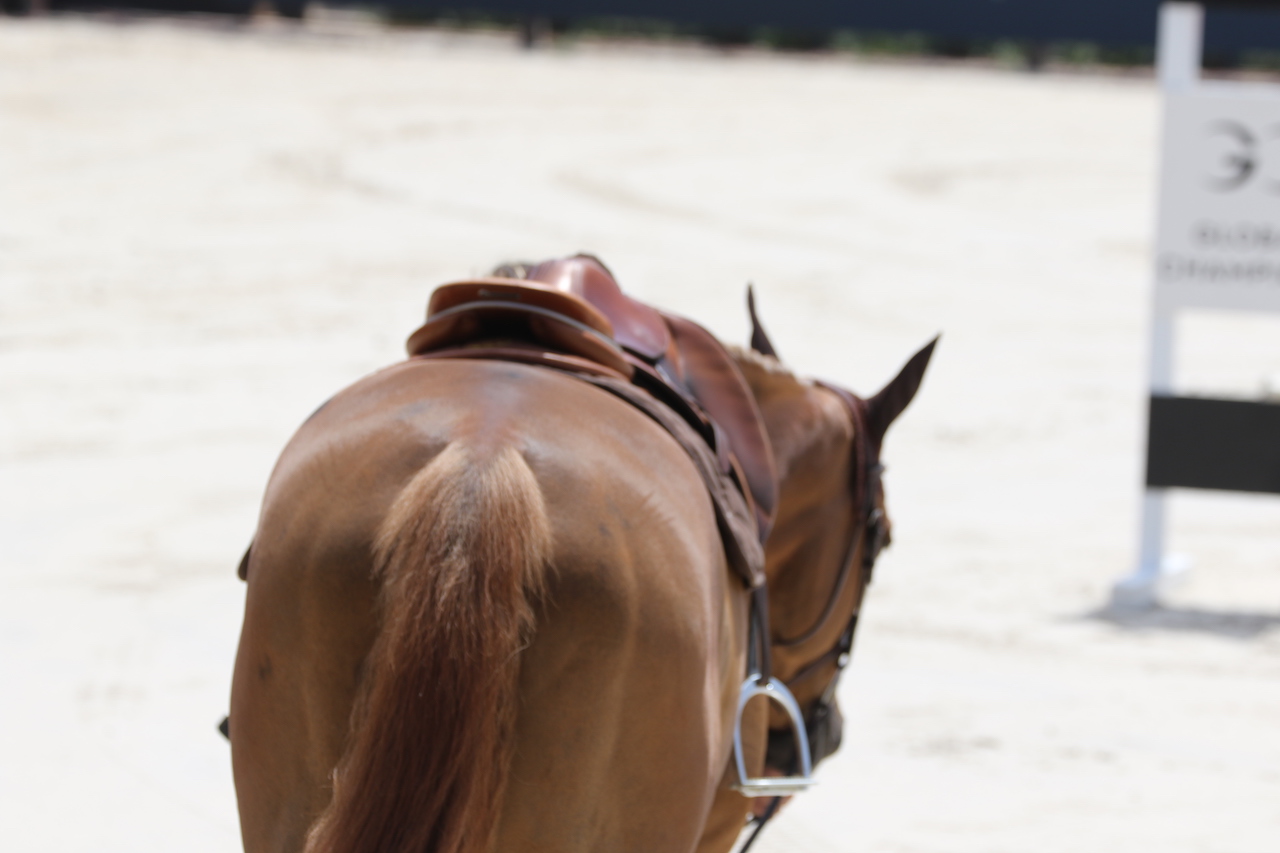After the Corona virus, the horse world is currently facing another deadly virus: rhinovirus. Rhino is nothing new, but less is known about the long-term consequences. We therefore asked one of Equitom's vets and an owner who had to deal with rhino in the past to what extent this virus has a lasting impact on your horse's health.
"It's difficult to predict in advance the lasting impact of the virus on your horse," starts Dr. Simona Cerri, veterinarian at Equitom. "A lot depends on the severity of the symptoms your horse shows during the disease. A horse that only develops a fever will not be affected by the virus in the long run. For a horse with symptoms of paralysis, it is unfortunately different. The first 'recovery', by which I mean the disappearance of the first symptoms of the disease, can take a few days to weeks. Normally, horses that have had rhino can become active again in the sport but this is a very gradual process. It is not the case that if your horse is cured, he can jump a big competition immediately two weeks after. However, some horses never fully recover and will always remain weak or unable to control their bladder. It's hard to draw a line on this as it really depends on a case-by-case basis," she concludes.
This is confirmed by an owner whose horse suffered from the neurological form of rhino a few years ago: "A few years ago there was a rhino outbreak in our stable. I was on vacation at the time so the owner of the stable called me to say that my horse was making a fever but was otherwise stable. Two days later, however, it was a very different story: he deteriorated tremendously in a short period of time and his behind legs were very affected by the virus. I think he was very sick for about a week; he was lying on his hindquarters in his stable and barely got straight. The University of Ghent came by to help monitor the situation in the barn and then he fell down in the hallway since he was still on his shoes. He then lay there for an hour, but eventually we managed to get him back upright. He also had to be probed every day from that day on as his bladder was no longer working independently. In the end, with the help of a veterinarian friend, he recovered. Although "recovered" is a very optimistic statement. His hind legs are still bothering him, he has never jumped again and now serves as a 'walking horse'. Walking is good for him by the way, that way he keeps moving. He can't gallop very well anymore, you can see that he has a sort of 'cock step' and he always jumps into a cross canter. He sometimes gets a puncture in his hindquarters but that was not very effective... To be honest: rhino has totally 'destroyed' my horse so I hold my heart for the horses that are in Valencia now," he concludes.





